Almost half of working Britons would get more satisfaction from a ‘green job’ than they do their current job
The UK economy shrank by 9.9% in 2020, the largest annual fall on record. The impact of that is reflected in our latest Ipsos KnowledgePanel survey1 which shows that half of employees in Great Britain have had their working lives affected by the pandemic. For a minority this has meant increased working hours (17%) or more money (5%), however 31% of employees have been negatively affected, a proportion which increases to 46% among those aged 16-24 years.
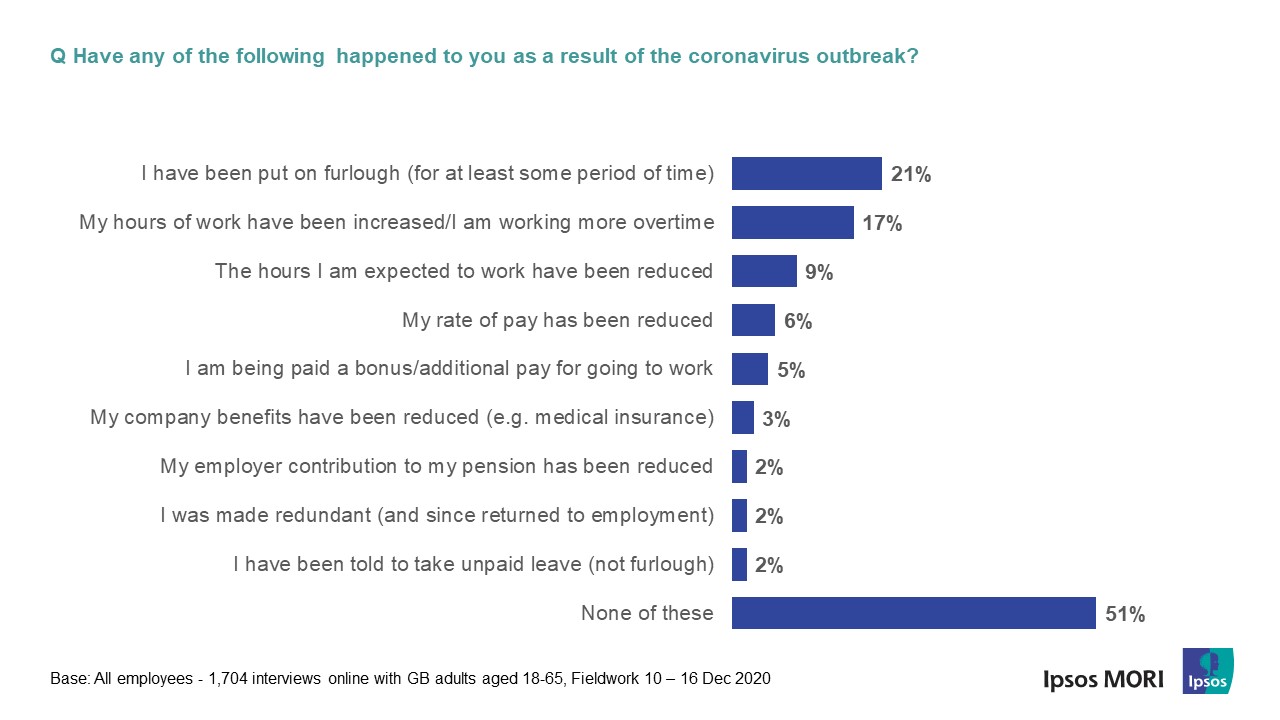
It is the Government’s ambition that a Green Industrial Revolution will be key to helping Britain ‘build back better’. The plan is for a green recovery – with high-skilled high-paid jobs that offer the extra satisfaction of helping to make our nation cleaner, greener and more beautiful.
Indeed, when asked, 45% of those currently in work agree that a ‘green job’ that helped prevent climate change or helped the environment, would give them more satisfaction than their current job.
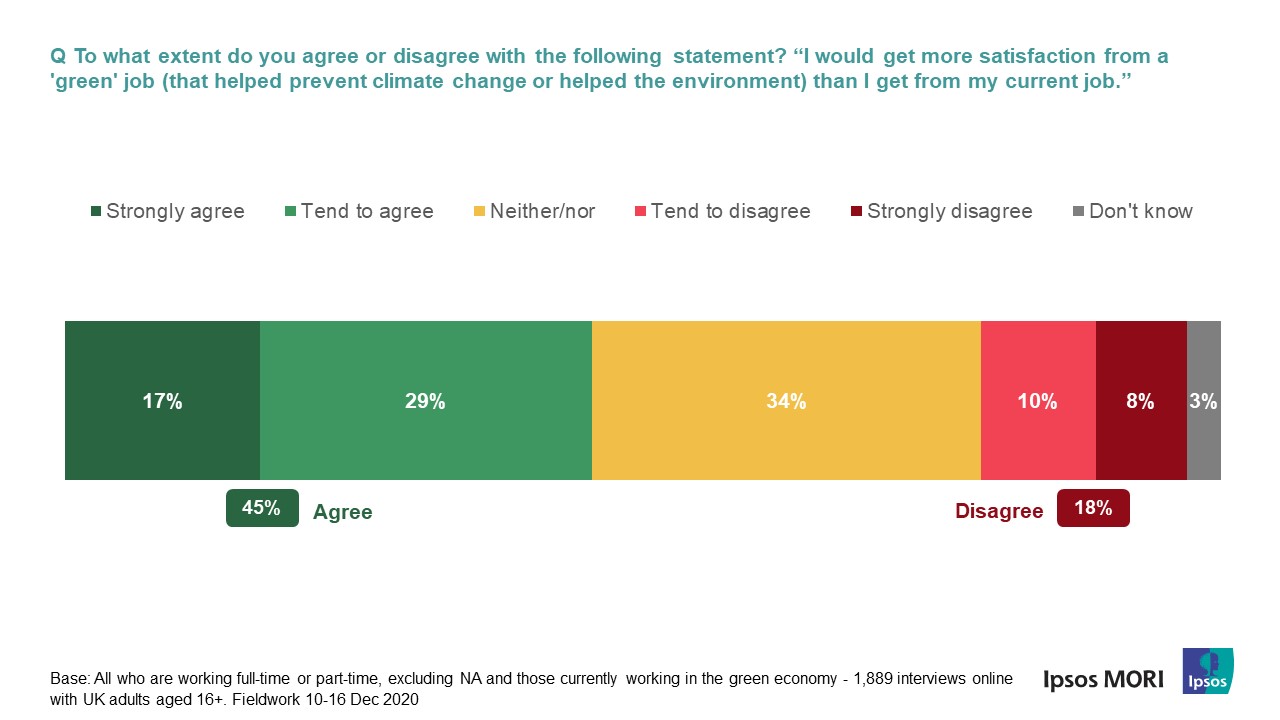
From a list of nine sectors some of which are considered central to driving the green economy, we asked which if any they would like to be prioritised by Government to support the creation of new jobs in the economic recovery. Half of participants would prioritise renewable energy, rising to 54% among those aged under 35 years, an age group which is also more likely than others to support job creation in clean transport (38%). Whilst those aged 55+ years are more likely than those in the other age groups to prioritise energy efficiency (47%) and sectors which focus on infrastructure such as housing (38%), road construction (21%) and telecoms (14%).
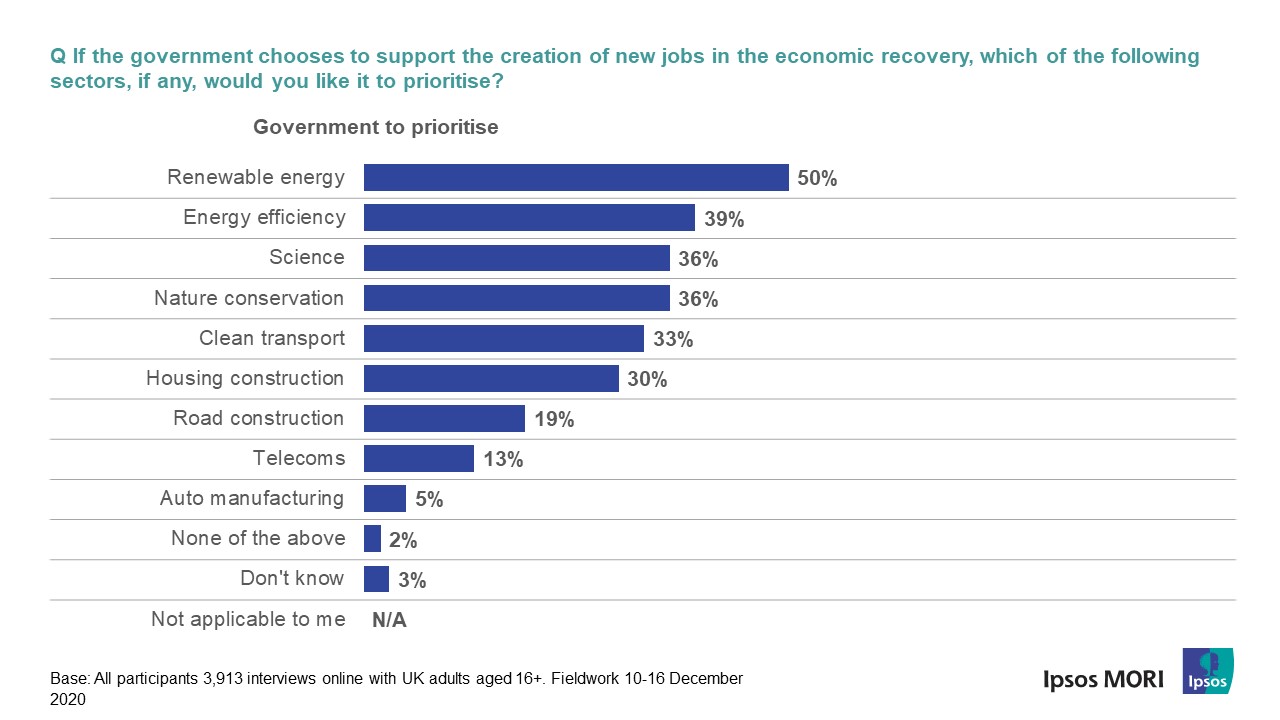
Whilst 72% of those of working age believe that they do not currently have the skills or qualifications to work in these nine sectors listed (63% if you are male, 80% if you are female), this does not detract from an interest to do so – two-thirds (65%) say they would personally be interested to work in one or more of these sectors listed. Around three in ten of whom are interested in nature conservation (31%) or science (28%) and just under a quarter would be interested in the renewable energy sector.
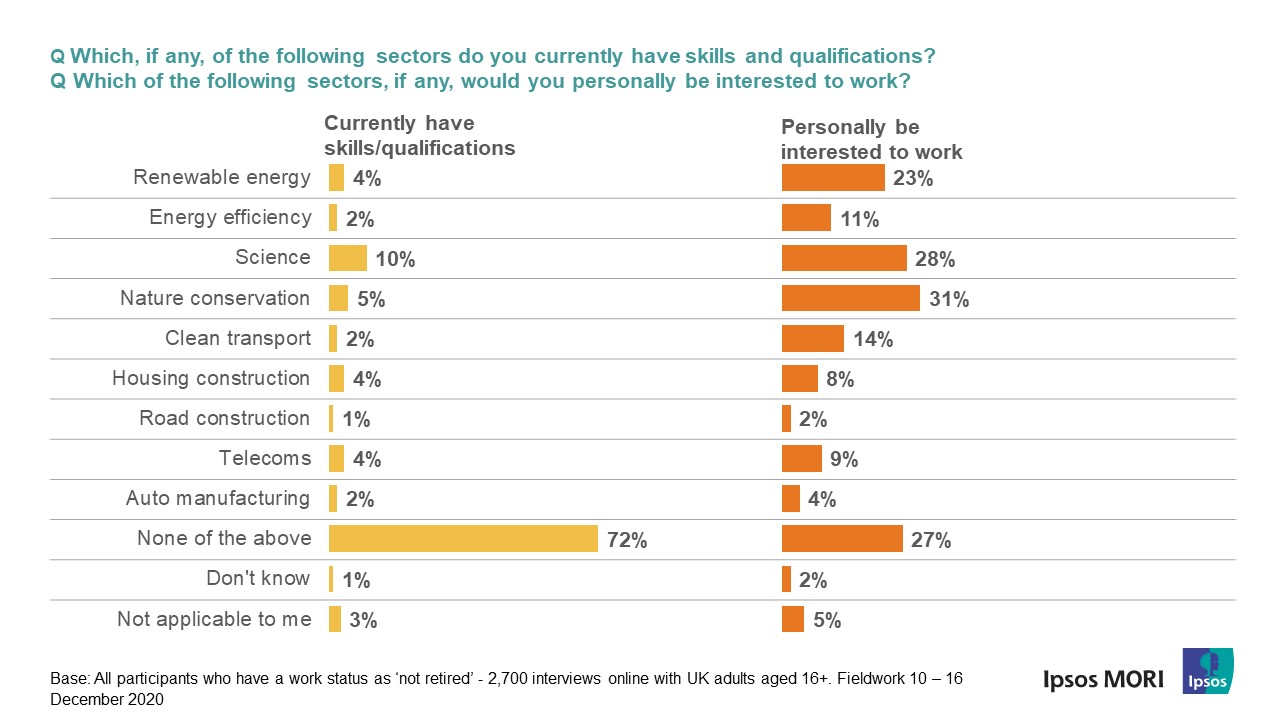
It is those in the youngest age groups who are more likely to be interested in a job in the green economy. For those aged 16-24 there is greatest interest in a career in science (40%) which is significantly higher than the average (28%), followed by nature conservation (31%), renewable energy (27%) and clean transport (23%), which is also significantly higher than the average (14%).
So where does a budding scientist, engineer or conservationist embark on their career, especially if COVID-19 has delivered a false start? There are different types of government support currently available to those looking for a new job, however 45% of the general public had not heard of the three listed. The Government’s Kickstart scheme for those aged 16-24 on Universal Credit, was recognised by just 17% of this age group.
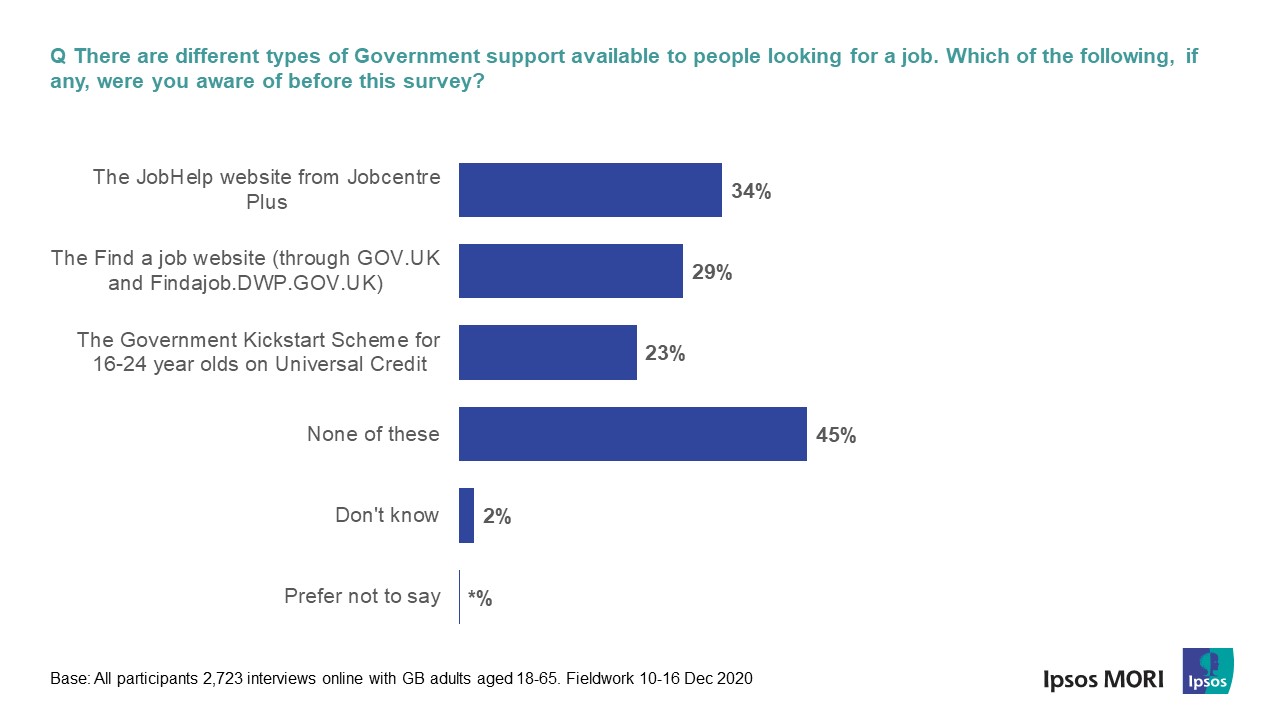
Whilst there is much to be done to build a workforce which has the necessary skills and qualifications for our ‘Green Revolution’, the research shows there is widespread interest and latent potential waiting to be realised. These career pathways into the green economy will be new to many, so it will be important that the signposting is available through careers guidance, further education and apprenticeship schemes. The goal will be to create a diverse sustainable workforce, which meets employer demand, helps Britain ‘build back better’ and creates a greener future.
Notes
1: The Ipsos KnowledgePanel is a random probability online panel






